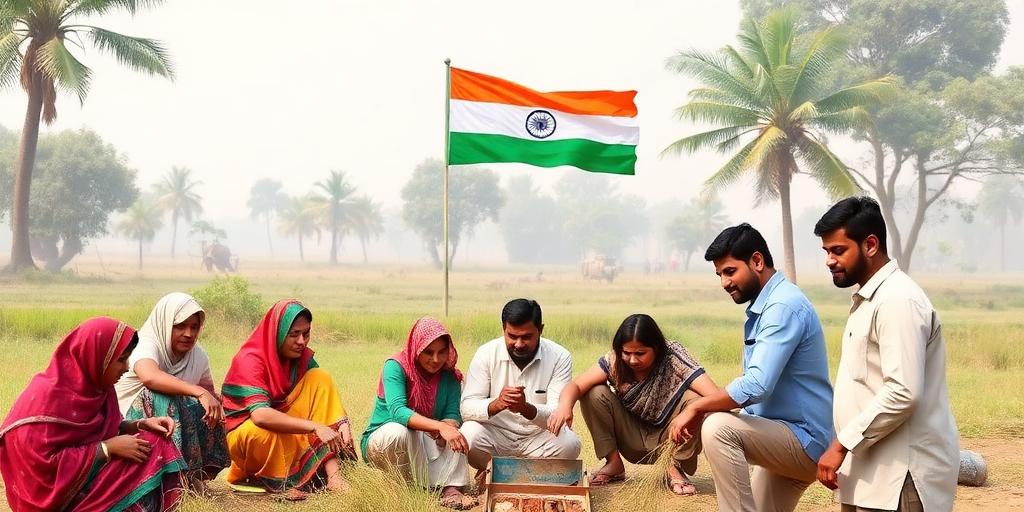The Indispensable Role of NGOs in Bolstering Sarkari Yojana 2025
As India strides towards its developmental goals outlined in Sarkari Yojana 2025, the role of Non-Governmental Organizations (NGOs) becomes increasingly critical. These entities serve as vital bridges, connecting governmental initiatives with the communities they aim to serve. This article delves into the multifaceted role NGOs play in ensuring the success and widespread impact of Sarkari Yojana 2025.
Understanding Sarkari Yojana 2025
Sarkari Yojana 2025 encapsulates a series of government-led programs designed to address key socio-economic challenges. These initiatives span across sectors such as healthcare, education, environmental sustainability, and poverty alleviation. The ambition of these programs requires a collaborative approach, where NGOs can significantly enhance reach and effectiveness.
Bridging the Gap: NGOs as Essential Intermediaries
NGOs possess a unique advantage: grassroots-level understanding and community trust. Unlike governmental bodies, they often have established relationships within local communities, enabling them to:
- Identify Real Needs: NGOs are adept at recognizing the specific needs of diverse populations, ensuring that government schemes are tailored appropriately.
- Enhance Awareness: They play a pivotal role in disseminating information about Sarkari Yojana 2025, clarifying objectives and benefits to potential beneficiaries.
- Facilitate Access: NGOs assist in navigating bureaucratic processes, helping marginalized communities access the resources and support they are entitled to.
Key Areas of NGO Involvement
- Healthcare: NGOs aid in implementing national health programs by conducting awareness campaigns, facilitating access to medical services, and monitoring public health outcomes.
- Education: They support educational initiatives by running supplementary learning centers, providing teacher training, and advocating for improved educational infrastructure.
- Environmental Sustainability: NGOs contribute to environmental conservation efforts through afforestation drives, waste management programs, and promoting sustainable agricultural practices.
- Poverty Alleviation: By implementing livelihood programs, skill development initiatives, and microfinance schemes, NGOs empower individuals to lift themselves out of poverty.
Case Studies: Demonstrating Impact
Numerous case studies highlight the transformative impact of NGO involvement in government programs. For instance, in rural healthcare, NGOs have successfully reduced maternal mortality rates by providing antenatal care and promoting institutional deliveries. Similarly, in education, NGOs have improved enrollment and retention rates among underprivileged children through innovative teaching methods and community engagement.
Challenges and Opportunities
Despite their significant contributions, NGOs face challenges such as:
- Funding Constraints: Limited and unpredictable funding streams can hinder long-term planning and program implementation.
- Capacity Building: There is a need for continuous capacity building to enhance organizational effectiveness and program management skills.
- Regulatory Hurdles: Navigating complex regulatory frameworks can be time-consuming and resource-intensive.
However, these challenges also present opportunities for collaboration and innovation. By strengthening partnerships between the government, NGOs, and the private sector, a more robust and impactful ecosystem can be created.
The Way Forward: Strengthening Collaboration
To maximize the impact of NGOs in Sarkari Yojana 2025, it is imperative to:
- Foster Transparent Communication: Establish clear channels of communication between governmental bodies and NGOs to ensure alignment of goals and strategies.
- Provide Adequate Funding: Allocate sufficient resources to NGOs, enabling them to implement programs effectively and sustainably.
- Simplify Regulatory Processes: Streamline regulatory procedures to reduce administrative burdens and facilitate smoother operations.
- Promote Capacity Building: Invest in training and development programs to enhance the skills and expertise of NGO staff.
Conclusion
NGOs are indispensable partners in the successful implementation of Sarkari Yojana 2025. Their grassroots presence, community trust, and specialized expertise make them uniquely positioned to bridge the gap between government initiatives and the intended beneficiaries. By addressing the challenges and fostering collaboration, India can harness the full potential of NGOs to achieve its developmental goals and build a more equitable and prosperous society.









